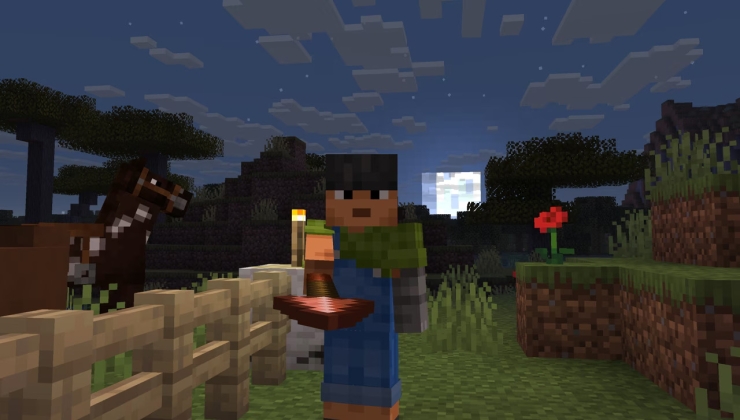It seems the OpenGL threaded dispatch code to speed up some games in Mesa now uses a whitelist, with a few games now able to make use of it. As a quick reminder, the OpenGL threaded dispatch code aims to reduce the CPU overhead of Mesa, resulting in better performance for some games.
They seem to have gone for a whitelist, since not all games work with it. In fact, some games regress with it, so it's a safer approach to allow it for games that are known to work better with it.
A set of 10 patches from Mesa developer Marek made it into the Mesa-dev mailing list on Thursday. It looks like all patches as of early this morning are now in Mesa-git too, so this should be in Mesa 17.2 which is due for release in August.
Here you can see the games currently whitelisted and their changes:
Marek was pretty clear that he doesn't plan to spend any more time on glthread in the near future. Hopefully someone else can keep it going, if more work is needed that is.
Don't remember what Mesa is? I wrote a little article to help explain it.
They seem to have gone for a whitelist, since not all games work with it. In fact, some games regress with it, so it's a safer approach to allow it for games that are known to work better with it.
A set of 10 patches from Mesa developer Marek made it into the Mesa-dev mailing list on Thursday. It looks like all patches as of early this morning are now in Mesa-git too, so this should be in Mesa 17.2 which is due for release in August.
Here you can see the games currently whitelisted and their changes:
QuotePerformance deltas:
Alien Isolation: +17% (it varies depending on the location)
Borderlands 2: +50% (it varies depending on the location)
BioShock Infinite: +76% (benchmark)
Civilization 6: +20% (benchmark)
Marek was pretty clear that he doesn't plan to spend any more time on glthread in the near future. Hopefully someone else can keep it going, if more work is needed that is.
Don't remember what Mesa is? I wrote a little article to help explain it.
Some you may have missed, popular articles from the last month:
All posts need to follow our rules. Please hit the Report Flag icon on any post that breaks the rules or contains illegal / harmful content. Readers can also email us for any issues or concerns.
I know OGL guys are very wary about using whitelists, but I think in these kind of performance tweaks it is ok to go for that - as long it doesn't turn messy and is well documented.
1 Likes
It seems to help The Witcher 3 in Wine, even with CSMT. I got 60 fps with threaded dispatch enabled (RX 480), while without it it only produces 40 fps (max settings, hairworks off).
External Media: You need to be logged in to view this.
4 Likes
Quoting: PeciskI know OGL guys are very wary about using whitelists, but I think in these kind of performance tweaks it is ok to go for that - as long it doesn't turn messy and is well documented.Seems to me, a lot of open source guys are purists and don't want any hacks, workarounds, whitelists for specific games as they see it as setting a bad precedent and think the game developers should fix these problems on their side.
While I tend to agree with them in one sense, it is the responsibility of the developers/porters to do it properly. In reality most of them will never do this and so if we let the purists have their own way, gaming on AMD hardware would be stuck back in the stone age.
Personally I'm happy to see all this work being done, it means finally I can play these games Windows and nvidia users have had no trouble with for years.
Last edited by lejimster on 26 Jun 2017 at 4:14 pm UTC
0 Likes
Quoting: lejimsterEventually it should be possible to enable/disable this feature automatically based on whether it is improving things or not. Nvidia originally had a whitelist for their version of it by it's now enabled on the fly.Quoting: PeciskI know OGL guys are very wary about using whitelists, but I think in these kind of performance tweaks it is ok to go for that - as long it doesn't turn messy and is well documented.Seems to me, a lot of open source guys are purists and don't want any hacks, workarounds, whitelists for specific games as they see it as setting a bad precedent and think the game developers should fix these problems on their side.
While I tend to agree with them in one sense, it is the responsibility of the developers/porters to do it properly. In reality most of them will never do this and so if we let the purists have their own way, gaming on AMD hardware would be stuck back in the stone age.
Personally I'm happy to see all this work being done, it means finally I can play these games Windows and nvidia users have had no trouble with for years.
Nobody is working on this yet for Mesa.
0 Likes
Actually, correction. I had framerate cap switched on in TW3. Without it, it reaches 70-75 fps with threaded dispatch.
But when it's on, it seems to have a bad side effect. There are occasional dips in framerate, where things stutter for a fraction of a second. This doesn't happen when threaded dispatch is off.
Last edited by Shmerl on 27 Jun 2017 at 3:22 am UTC
But when it's on, it seems to have a bad side effect. There are occasional dips in framerate, where things stutter for a fraction of a second. This doesn't happen when threaded dispatch is off.
Last edited by Shmerl on 27 Jun 2017 at 3:22 am UTC
0 Likes
Seeing as GL Threaded Dispatch improves performance in The Witcher 3 substantially, how can I enable it? ^-^'
(need ability to remove my own posts ; wanted to post this in forums, messed up my tabs ._.)
Last edited by DasCapschen on 27 Jun 2017 at 8:12 am UTC
(need ability to remove my own posts ; wanted to post this in forums, messed up my tabs ._.)
Last edited by DasCapschen on 27 Jun 2017 at 8:12 am UTC
0 Likes








 How to setup OpenMW for modern Morrowind on Linux / SteamOS and Steam Deck
How to setup OpenMW for modern Morrowind on Linux / SteamOS and Steam Deck How to install Hollow Knight: Silksong mods on Linux, SteamOS and Steam Deck
How to install Hollow Knight: Silksong mods on Linux, SteamOS and Steam Deck